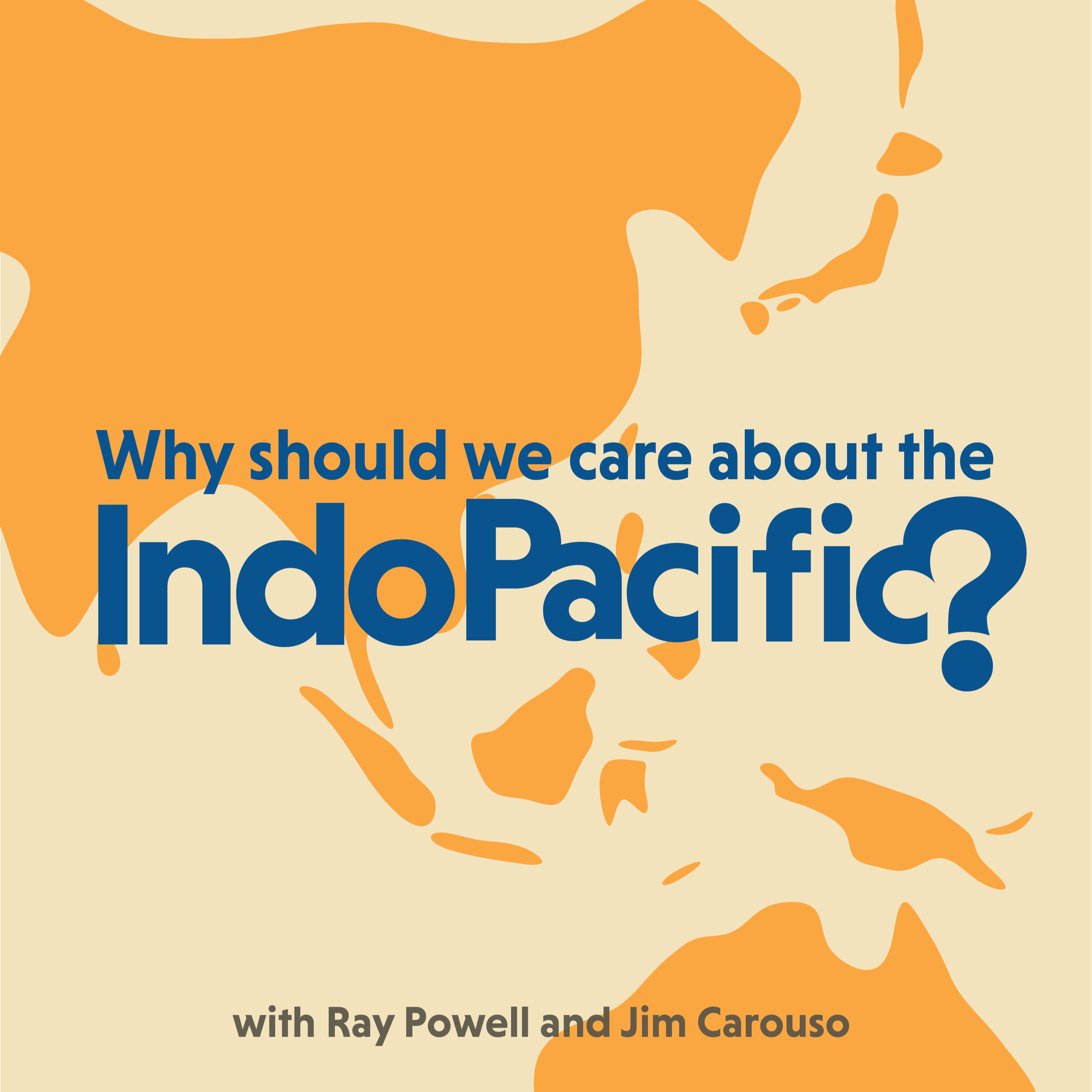
Why Should We Care if China is the Superpower of Seafood? | with Ian Urbina

Why Should We Care About the Indo-Pacific?
Deep Dive
Shownotes Transcript
Pulitzer Prize-winning investigative journalist Ian Urbina) returns to “Why Should We Care About the Indo-Pacific” to preview Season 2 of his acclaimed Outlaw Ocean podcast), exposing the hidden world of human rights and environmental abuses on the high seas—from brutal labor conditions on distant-water fishing vessels to coercive processing centers in China, India, and beyond.
Urbina, founder and director of the Outlaw Ocean Project), dives into the maritime underworld and examines what’s changed—and what remains unchanged—since his first appearance on the pod. The conversation unfolds in two parts:
- China’s Distant-Water Fleet & At-Sea Abuses
Fleet scale and state ties: China’s distant-water fleet dwarfs all others, with estimates ranging from 2,700 to 17,000 vessels; Urbina’s team calculated about 6,500 ships, one-third of which have direct state involvement.
Illegal fishing and geopolitical power: Chinese longliners and squid jiggers routinely engage in illegal, unreported, and unregulated (IUU) fishing—invading marine protected areas, overfishing, and crossing exclusive economic zones—thereby gaining economic advantage and shaping “facts on the water” to support territorial claims.
Life on board squid jiggers: These industrial vessels use hundreds of bright lights and metal arms to jig for squid. Crews of 30–50 often endure two- to three-year contracts at sea with no shore leave, cramped and unsanitary conditions, malnutrition, and no Wi-Fi. Laborers—initially foreign but increasingly rural Chinese—face debt bondage, violence, passport confiscation, and forced labor.
- On-Land Processing & Global Supply Chains
Scope expansion: Season 2 follows seafood from ship to shore, uncovering forced labor in processing plants across China, India, and along the North Korean border.
Chinese processing centers: Utilizing open-source intelligence and encrypted Chinese platforms, Urbina’s team documented state-orchestrated labor transfers of Uyghurs from Xinjiang to coastal seafood factories—facilities that supply major global buyers, including U.S. government cafeterias. Workers face locked compounds, surveillance, and coercion akin to modern slavery.
North Korean laborers: Thousands of North Korean women are trafficked into Chinese factories under government vetting. Held in locked dorms and subjected to widespread sexual abuse and forced overtime, these women are trapped by debts owed to smugglers and extortion from border officials.
Indian shrimp processing: A whistleblower’s 50,000-page dossier exposed debt bondage, physical confinement, and antibiotic-tainted shrimp at processing plants in India. As Western buyers migrated from Thailand to India, the same labor abuses reemerged, threatening food safety and ethical sourcing.
By weaving narrative storytelling with hard data and firsthand testimony, this episode underscores the urgent need for transparent supply chains and international enforcement to protect vulnerable workers and marine ecosystems. Visit TheOutlawOcean.com) for updates, subscribe to the newsletter, and tune into Season 2 for deep-dive investigations that track seafood—and human exploitation—from ocean depths to dinner tables.